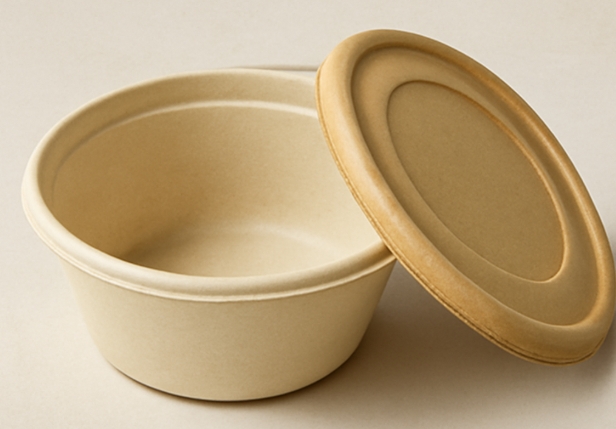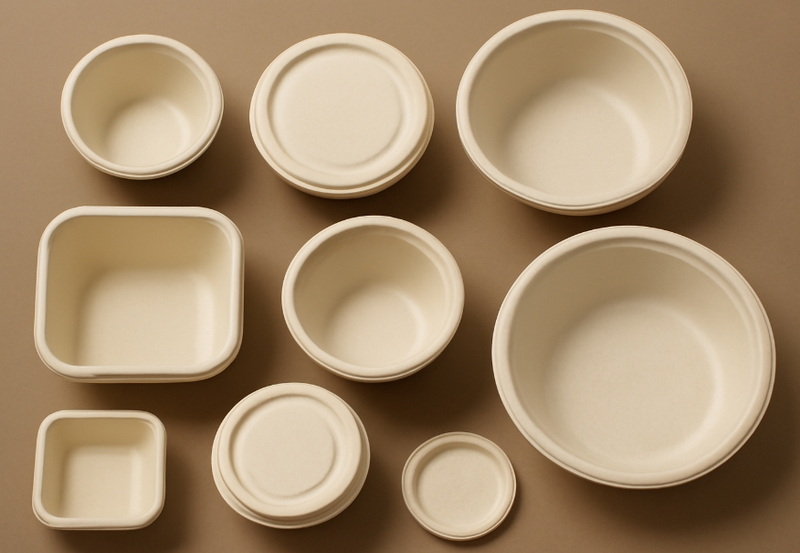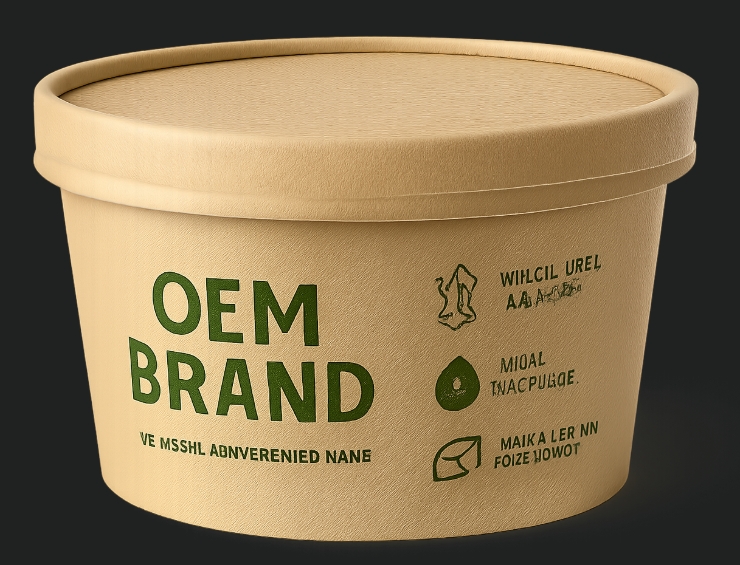
Content Menu
● What Are OEM Bowl And Lid Solutions?
● Why Choose Eco-Friendly OEM Bowl And Lid Options?
>> Environmental Responsibility
>> Brand Value and Consumer Trust
>> Regulatory Compliance
● Types of Eco-Friendly OEM Bowl And Lid Materials
>> Sugarcane Bagasse
>> Bamboo Fiber
>> Kraft Paper
>> Leaf-Based and Bioplastic Combinations
● Key Features of Eco-Friendly OEM Bowl And Lid Options
● How to Source Eco-Friendly OEM Bowl And Lid Solutions
>> Identify Your Needs
>> Evaluate Material Certifications
>> Choose the Right Supplier
>> Sample and Test
>> Place OEM Orders
● Real-World Applications and Benefits
>> Restaurants and Takeaways
>> Catering and Events
>> Food Manufacturers and Brands
● Enhancing Sustainability with Smart Choices
>> Opt for PFAS-Free Products
>> Prioritize Compostable Coatings
>> Encourage Customer Participation
● The Future of Eco-Friendly OEM Bowl And Lid Packaging
● Conclusion
● FAQ: Eco-Friendly OEM Bowl And Lid Solutions
>> 1. What materials are most commonly used for eco-friendly OEM bowl and lid options?
>> 2. Can I customize eco-friendly OEM bowl and lid products with my brand logo?
>> 3. Are compostable bowls and lids suitable for both hot and cold foods?
>> 4. How do I ensure the eco-friendly OEM bowl and lid options I choose are truly sustainable?
>> 5. What are the disposal guidelines for eco-friendly OEM bowl and lid packaging?
As the world shifts toward sustainability, the demand for eco-friendly packaging has never been higher. Businesses and consumers alike are seeking alternatives that reduce environmental impact without sacrificing quality or convenience. One area where this shift is especially noticeable is in the food service and packaging industry, particularly with the growing need for eco-friendly OEM bowl and lid options. Whether you operate a restaurant, manage catering services, or are a brand looking to enhance your green image, understanding the landscape of sustainable OEM bowl and lid solutions is essential.

What Are OEM Bowl And Lid Solutions?
OEM (Original Equipment Manufacturer) bowl and lid solutions refer to products manufactured to a client's specific requirements. This includes customization in terms of size, shape, branding, and material. Eco-friendly OEM bowl and lid options are designed to be biodegradable, compostable, recyclable, or made from renewable resources. These solutions not only help reduce waste but also appeal to environmentally conscious consumers, setting your brand apart in a competitive market.
Why Choose Eco-Friendly OEM Bowl And Lid Options?
Environmental Responsibility
Traditional plastic bowls and lids are a major contributor to landfill waste and ocean pollution, taking centuries to decompose. Eco-friendly alternatives, on the other hand, are designed to break down naturally or be recycled, significantly reducing their environmental footprint.
Brand Value and Consumer Trust
Today's consumers expect brands to demonstrate environmental responsibility. Using sustainable OEM bowl and lid packaging meets these expectations, builds trust, and enhances your brand reputation. This can lead to increased customer loyalty and potentially drive sales growth.
Regulatory Compliance
Many regions are introducing strict regulations on single-use plastics and non-biodegradable packaging. Adopting eco-friendly OEM bowl and lid options ensures compliance with these evolving standards, reducing legal risks and future-proofing your business.
Types of Eco-Friendly OEM Bowl And Lid Materials
Sugarcane Bagasse
Sugarcane bagasse is a byproduct of sugar production. Bowls and lids made from this material are fully compostable and biodegradable, breaking down within months under composting conditions. They are sturdy, heat-resistant, and suitable for both hot and cold foods, making them ideal for takeout and catering.
Bamboo Fiber
Bamboo is a rapidly renewable resource that grows without pesticides or fertilizers. Bamboo fiber bowls and lids are strong, naturally antibacterial, and compostable. They can withstand high temperatures and are free from harmful chemicals, offering a premium eco-friendly solution.
Kraft Paper
Kraft paper bowls and lids are made from wood pulp sourced from sustainably managed forests. When paired with water-based or PLA (polylactic acid) coatings, they become both leak-resistant and compostable. Kraft paper is also easily customizable for branding and is recyclable in many regions.
Leaf-Based and Bioplastic Combinations
Some innovative solutions use pressed leaves layered with water-resistant, biodegradable coatings, paired with lids made from bioplastics or recycled plastics. These break down rapidly and contain no synthetic additives, dyes, or glues.
Key Features of Eco-Friendly OEM Bowl And Lid Options
- Biodegradability and Compostability: Designed to decompose naturally within a few months, supporting waste reduction and soil enrichment.
- Leak and Grease Resistance: Engineered with advanced coatings or multi-layer construction to prevent leaks and maintain food quality.
- Heat and Cold Tolerance: Suitable for a wide range of foods, including hot soups, cold salads, and oily dishes.
- Custom Branding: OEM bowl and lid solutions can be printed with your logo, colors, and messaging, enhancing brand visibility.
- Variety of Sizes and Shapes: Available in multiple capacities and forms to suit diverse menu items and serving needs.

How to Source Eco-Friendly OEM Bowl And Lid Solutions
Identify Your Needs
- Food Types: Consider what foods you'll serve—soups, salads, desserts, or hot entrees.
- Volume and Storage: Assess your storage space and order quantities.
- Branding Requirements: Determine the level of customization needed, such as logo printing or unique shapes.
Evaluate Material Certifications
Look for certifications that guarantee compostability, biodegradability, or sustainable sourcing. These include OK COMPOST, EN13432, BPI, and FSC.
Choose the Right Supplier
Select suppliers with a proven track record in sustainable packaging. Leading manufacturers offer sample support, customization, and compliance with international standards. Some also provide factory audits and support for global logistics.
Sample and Test
Before placing large orders, request samples to test for durability, heat resistance, leak-proof performance, and print quality.
Place OEM Orders
Work with your chosen supplier to finalize design, materials, and order quantities. Many suppliers offer flexible minimum order quantities (MOQs) and support for bulk or small-scale procurement.
Real-World Applications and Benefits
Restaurants and Takeaways
Eco-friendly OEM bowl and lid options are perfect for takeout, delivery, and dine-in services. They help restaurants reduce their environmental impact while meeting customer expectations for sustainable packaging.
Catering and Events
For large-scale events, compostable bowls and lids simplify cleanup and waste management, as they can be disposed of in composting facilities, reducing landfill contributions.
Food Manufacturers and Brands
OEM solutions allow food brands to create unique, sustainable packaging that differentiates their products on store shelves and aligns with their corporate social responsibility goals.
Enhancing Sustainability with Smart Choices
Opt for PFAS-Free Products
Some eco-friendly bowls and lids are now made without PFAS (per- and polyfluoroalkyl substances), which are chemicals often used for oil and water resistance but are harmful to the environment and health.
Prioritize Compostable Coatings
Choose PLA or water-based coatings over traditional plastic linings to ensure the entire bowl and lid are compostable.
Encourage Customer Participation
Educate customers on proper disposal methods—whether recycling, composting, or reusing—to maximize the environmental benefits of your packaging.
The Future of Eco-Friendly OEM Bowl And Lid Packaging
Innovation continues to drive the development of new materials and designs. Expect to see more plant-based, edible, or even plantable packaging solutions in the coming years, as well as improved compostability and recycling infrastructure.
Conclusion
Eco-friendly OEM bowl and lid options are not just a trend—they are a necessity for brands committed to environmental responsibility, regulatory compliance, and consumer trust. With a wide range of materials, customization options, and certified suppliers available, making the switch is easier than ever. By choosing sustainable OEM bowl and lid solutions, businesses can significantly reduce their environmental impact, enhance their brand image, and meet the growing demand for green packaging.

FAQ: Eco-Friendly OEM Bowl And Lid Solutions
1. What materials are most commonly used for eco-friendly OEM bowl and lid options?
Eco-friendly OEM bowl and lid solutions are typically made from sugarcane bagasse, bamboo fiber, kraft paper, and sometimes pressed leaves or bioplastics. These materials are renewable, compostable, and biodegradable, making them ideal for sustainable packaging needs.
2. Can I customize eco-friendly OEM bowl and lid products with my brand logo?
Yes, most suppliers offer extensive customization options, including logo printing, color choices, and even unique shapes or embossing. This allows businesses to reinforce their brand identity while promoting sustainability.
3. Are compostable bowls and lids suitable for both hot and cold foods?
Absolutely. Modern compostable bowls and lids are engineered for strength, leak resistance, and temperature tolerance, making them suitable for hot soups, cold salads, and even oily or greasy foods.
4. How do I ensure the eco-friendly OEM bowl and lid options I choose are truly sustainable?
Look for certifications that indicate the products meet international standards for compostability, biodegradability, or sustainable sourcing. These include OK COMPOST, EN13432, BPI, and FSC.
5. What are the disposal guidelines for eco-friendly OEM bowl and lid packaging?
Most compostable bowls and lids should be disposed of in commercial composting facilities, where available. Some may be home-compostable or recyclable, depending on the material and local waste management infrastructure. Always check with your supplier and local regulations for best practices.

















